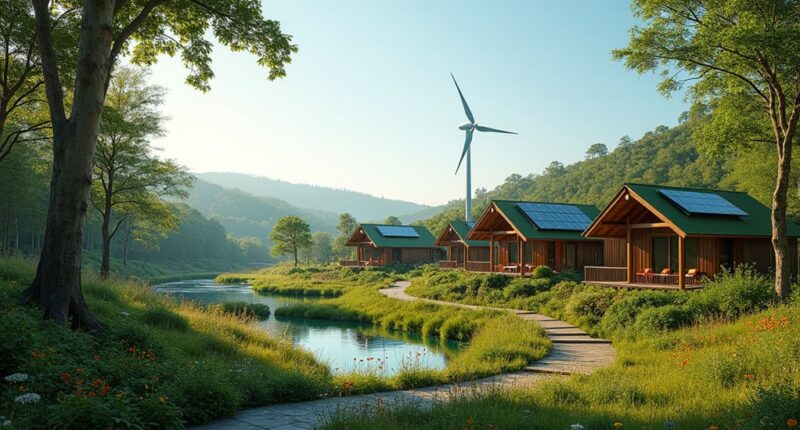The luxury travel sectors in the UK, US, and Nordic regions are surprisingly leading the charge in eco-conscious tourism. They blend indulgence with sustainability, proving that luxury doesn’t have to leave a carbon footprint the size of Bigfoot. With around 75% of luxury brands adopting eco-friendly practices, travelers can enjoy opulent stays while supporting local communities. It’s like enjoying gourmet chocolate that also saves the rainforest. Want to know more about these eco-havens? Stick around!
Eco-Luxury: Travel With a Conscience
What if the ultimate vacation could leave both hearts and the planet a little lighter? In recent years, the luxury travel landscape, particularly in the UK, US, and Nordic regions, has transformed into a vibrant hub of eco-conscious tourism. With 73% of global consumers willing to pay a bit more for sustainable travel options in 2024, it seems the age of guilt-free indulgence has arrived.
Picture this: opulent eco-resorts, like the stunning Soneva Jani in the Maldives, where luxury meets conservation. These establishments are not just about plush pillows and gourmet meals; they embrace zero-waste technologies and renewable energy, ensuring that guests can luxuriate without leaving a hefty carbon footprint. Eco-luxury travel promotes the idea of luxury travel as a positive force for the planet and local communities. Additionally, new initiatives such as the sea turtle rescue center at Soneva Jani highlight the commitment to conservation and local community engagement.
And it doesn’t stop there—75% of luxury brands are now integrating sustainable architectural designs, making buildings feel more like part of nature than a stark interruption.
Travelers today are increasingly eco-aware, with 77% turning off lights and appliances to conserve energy during their trips. It’s a collective effort; even millennials, who are often criticized for their spending habits, are stepping up, with 73% willing to invest in eco-friendly experiences.
The allure of authentic cultural encounters, too, has captured the hearts of 66% of tourists, further reducing their ecological footprints while enriching their travel experiences. Many luxury resorts now incorporate sustainable food practices that support local farmers and minimize food waste through careful sourcing and preparation.
However, the journey to mainstream eco-luxury travel isn’t without its bumps. Greenwashing—a term for companies pretending to be eco-friendly—can leave consumers feeling like they’ve just bought an overpriced bottle of “organic” water.
And while many luxury eco-travel options exist, they can sometimes come with a price tag that feels more like a mortgage payment than a vacation investment.
Nevertheless, amidst the challenges, the UK, US, and Nordic countries are leading the charge. With genuine eco-conscious practices taking root, these regions are not just champions of luxury but also guardians of the planet, proving that with a little innovation and a lot of heart, travel can be both indulgent and sustainable.









